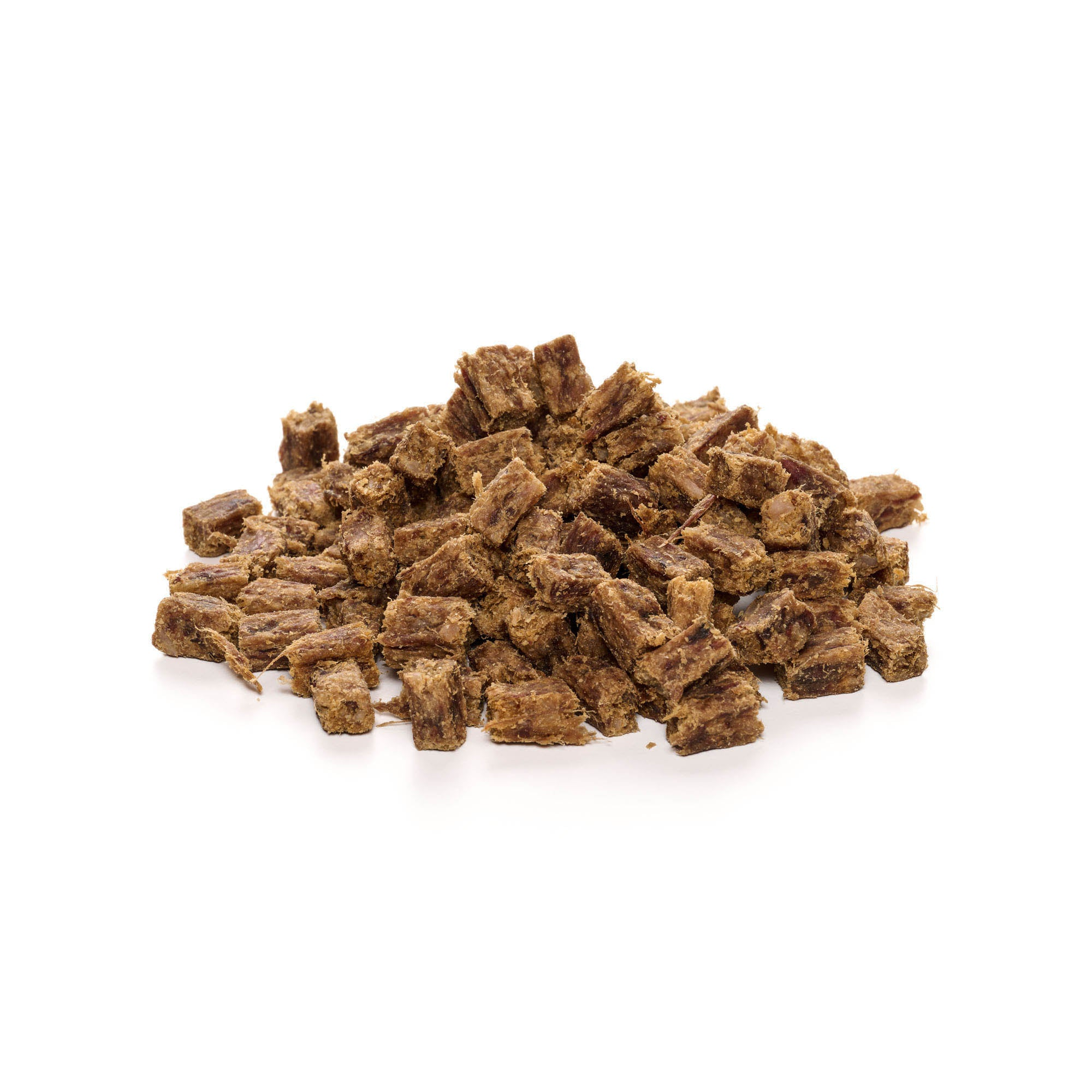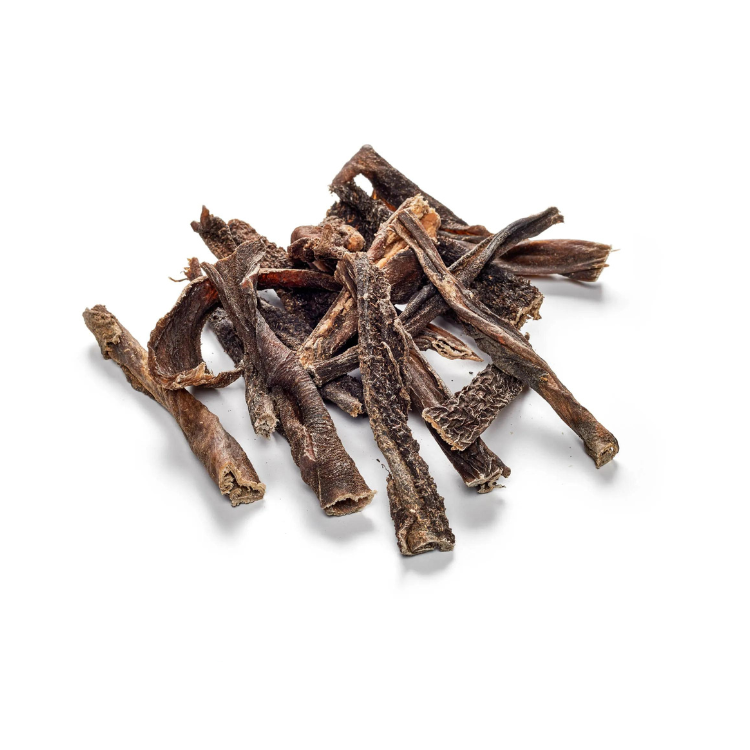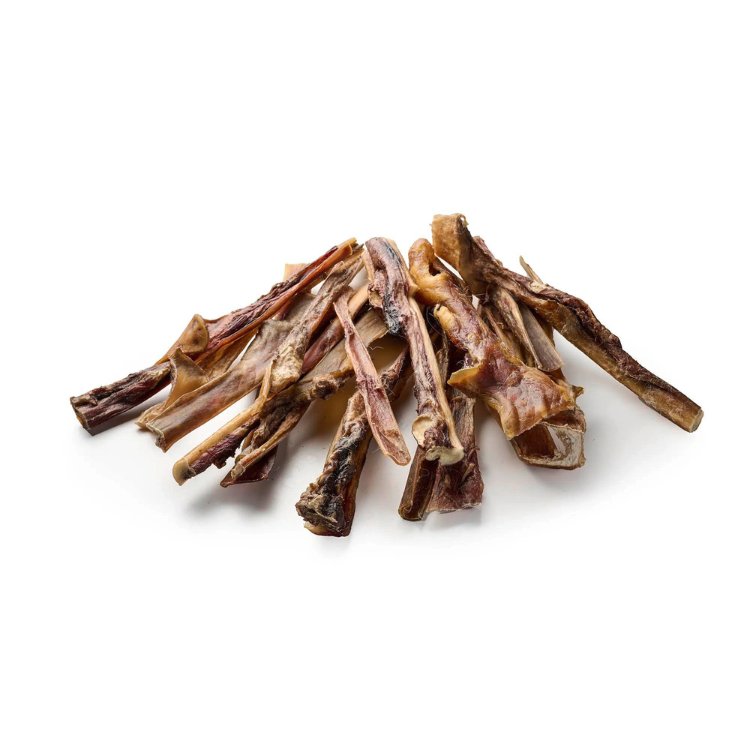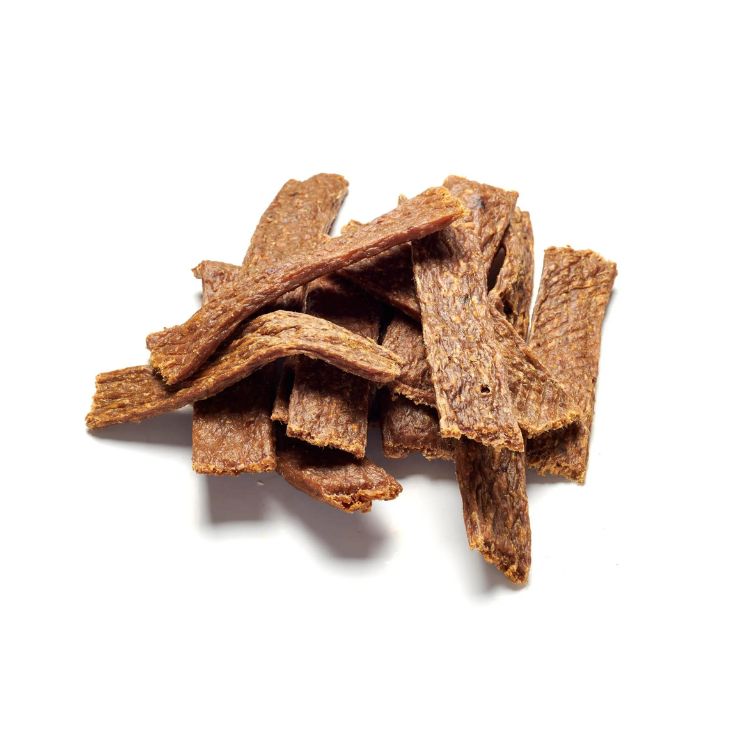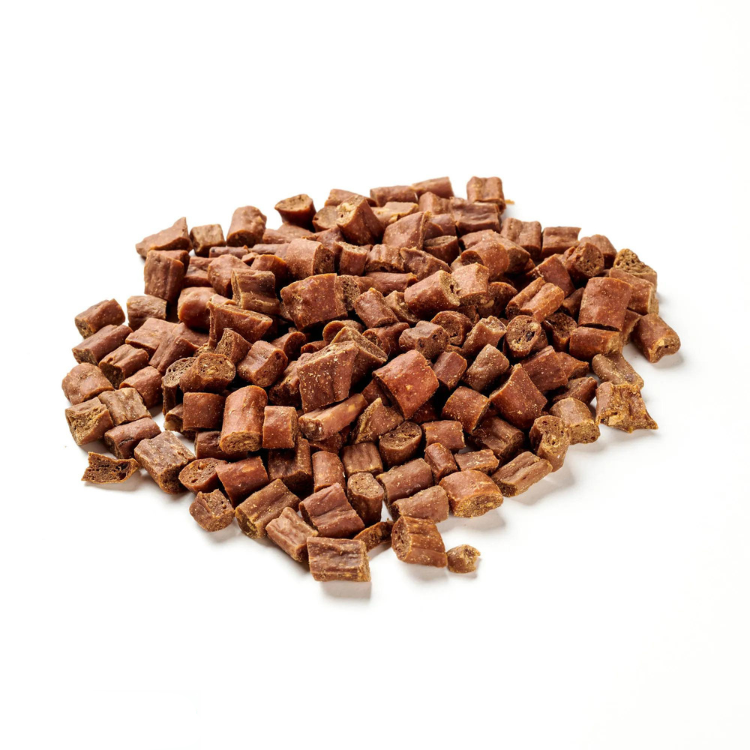
Worm treatment for dogs
Share
Almost every dog will be infected with worms at least once in their life. Even if this topic may seem uncomfortable or embarrassing to you at first, you can be sure that every owner can have a say in the matter. The only thing that helps against worms is a worming treatment. We will tell you everything about worms, treatments and what you can do to prevent an infestation.
Discover the range of dog snacks in our store!
What kind of worms are these and how can my dog become infected with them?
The scientific name for a worm infection is helminthiasis. Worms are parasites, which means they need a host - in this case your four-legged friend - to survive. They usually feed on nutrients or blood in the dog's body. And that is precisely what poses the greatest long-term danger of a worm infestation! Young, old and previously ill animals in particular can suffer from life-threatening nutrient deficiencies!
How do the worms get into the body?
Contrary to what you might imagine, the worms usually do not enter your furry friend in the fully grown stage, but as very small eggs. The worms then hatch from the eggs, make themselves comfortable in the dog's body and grow to their full size. Depending on the type, they nest in different organs and can cause various symptoms.
These are the most common types of worms
- Hookworms
- Tapeworms
- Roundworms
- Heartworms
How do I know if my dog has worms?
The symptoms of a worm infestation can vary greatly. This is exactly what makes it so difficult to recognize a worm infection. If your dog has a worm infestation, it may be that he is too thin , but weight is not always an indicator of this, but it could be a possibility. The risk level also varies greatly depending on the dog's age. In principle, however, it can be said that puppies are particularly at risk. The longer an infestation goes unnoticed, the riskier and more unpleasant it is for your four-legged friend. As an example of the four types of worm mentioned above, we have listed a few symptoms here that you can use to recognize that your dog has worms. However, these are sometimes very unspecific and can also indicate other problems. It is therefore always advisable to consult the vet!
Hookworms
Weight loss, shaggy coat, delayed development, bloody/mushy stools
Tapeworms
Often asymptomatic or difficult to detect, dull coat, weight loss, digestive disorders, itching around the anus (dog “rides sled”), intestinal obstruction
Roundworms
Especially in puppies : coughing, runny nose, vomiting, slimy stools, weight loss, shaggy fur // In case of severe infestation in the second and third week there is an acute risk to life!
Pamper your dog with our chew products!
Older animals: Symptoms are more likely to occur during a primary infection or during stress, otherwise they are more difficult to detect.
Heartworms
Fatigue, dry cough , shortness of breath, circulatory problems, fainting
Usually only a veterinarian can make a clear diagnosis, as worms can always be detected via eggs in the stool. A blood sample or an ultrasound can also provide certainty about an infestation. However, it can also happen that worms are visible to the human eye in the stool or vomit. If this happens, it is of course important to seek medical help immediately!
What is a worming treatment and how does it work?
To treat a worm infestation, the dog is given tablets. A specially designed chemical cocktail ensures that the parasites do not gain the upper hand. However, you should abandon the idea of getting your pet completely free of worms. Firstly, the pills cannot do this and secondly, it is completely normal (and harmless!) to have a certain number of organisms in your body.
After consultation with the responsible vet, worming pills are administered depending on the dog's weight, for example as chewable tablets. This shouldn't really be a problem, as these tablets are now made in such a way that your four-legged friend will accept the medicine without complaining. Another plus point is the price. You can expect to pay between three and 15 euros per piece. So the costs are reasonable. To ensure that your furry friend stays healthy and free of nasty parasites, it is recommended that you give your dog a worming treatment every three months, even if no symptoms appear, in consultation with your doctor.
However, we don't want to hide the fact that this regular intake of medication can also have disadvantages. As with antibiotics, resistance can also develop with worm pills. This means that in an emergency, they may no longer work properly. An alternative, especially for animals that are already sick or weakened, is to take regular stool samples. You can take them to a laboratory or to the vet. If there is a worm infestation, however, treatment with medication is a must!
What can I do to prevent re-infestation?
It is very important to know that worming pills CANNOT be used prophylactically. After deworming, your furry friend could theoretically become infected with the unwanted parasites again the next day. It is therefore a good idea to deworm regularly and to watch out for possible symptoms of infestation. Visible worms in your dog's stool are a clear sign that you can recognize even without a laboratory test. So next time you go for a walk, remember to take a closer look at the dog's poop every now and then before disposing of it in the dog poop bag .
Conclusion
Unfortunately, our beloved four-legged friends are predestined to catch worms due to their behavior. The curious snout wandering across the forest floor, the sniffing and licking of all kinds of things are the main reasons for a worm infection and of course the dog cannot be weaned off this behavior. However, with a combination of worming treatments and checking the stool or paying attention to possible symptoms, the danger can be kept pretty well at bay.
Discover the range of dog snacks in our store!

